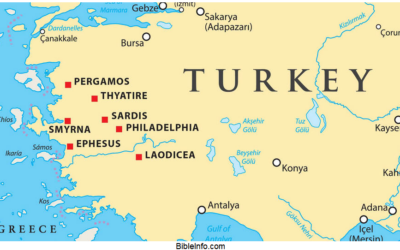The word philosophy means “love of wisdom.” It comes from two Greek words, “philos,” which means love, and “sophos,” which means wisdom. Therefore, when we ask, “What is philosophy?” the answer is not that easy. It is basically the study of varying topics such as knowledge, love, value, purpose, how we know things, what is reality, what is truth, etc. However, the three main subjects of philosophy are epistemology (knowledge), ethics (behavior), and metaphysics (existence). There are many more areas of philosophical study. This article will briefly go over aesthetics, epistemology, ethics, logic, metaphysics, and philosophy of mind. Let’s take a look.
Aesthetics
Aesthetics deals with beauty and art. Why do we value some forms of beauty over others? Why is something beautiful, and what defines good and bad art? Are beauty and art transcendent qualities to which we relate, or are they purely subjective, experience-based values shaped by culture and language? These questions are important, and answering them is not as easy as one might think. Different cultures have different forms of beauty, and art in one culture may not be valued by another. So, the philosophy of aesthetics deals with examining these issues.
Epistemology
Epistemology is the branch of philosophy that deals with the study of knowledge and how we justify knowing things. This category is very deep, with lots of subtopics. Coherentism says that beliefs are what justify knowledge. Empiricism says that knowledge is gained through experience. Foundationalism is the belief that rational intuition and sense perception provide the necessary foundation for knowledge. Grounding is the process by which a truth claim is supported and verified as being correct. There are also different kinds of knowledge such as intuitional, mathematical, memory, rational deduction, knowledge gained by the practice, skill set knowledge, etc. We can also know the past, experiences, morals, self-awareness, love, and more.
In Christianity, truth is what conforms to the mind of God. The only way to know something is absolutely true is if an infinite God with infinite knowledge reveals it to you. We have this in the Scriptures. Furthermore, since we are made in the image of God (Genesis 1:26-28), we can know things. We share that attribute with God. However, God knows things perfectly and completely. We do not. Therefore, true knowledge is whatever conforms to the mind of God. As I already said, Scripture is where that absolute knowledge is obtained. Consider, for example, where Jesus says in John 14:6, “I am the way, the truth, and the life, and nobody comes to the Father but by me.” Since Jesus is God in the flesh (John 1:1, 14; Colossians 2:9), we can trust that what he said is absolutely true. Therefore, we can justify having absolute knowledge because we believe in the truth of who Christ is and what he said.
Ethics
Ethics is the study of how we know what is right and wrong. It is the study of what we ought and not ought to do, of moral obligation. In this category, philosophers ask what makes something good and bad. Is morality objective or subjective? Is there a universal standard of morality, or are all morals dependent upon a person’s preferences and cultural context? The difficulty in ethics is bridging the gap between what is and what ought to be. However, in Christianity, all ethics are derived from the character of God. He reveals what is morally right and wrong in the Scriptures and the person of Jesus. Therefore, we can know what is absolutely right and wrong.
Logic
Logic deals with the correct methodology of reasoning. Logic is based upon the three main laws, 1) Law of identity, 2) Law of Non-contradiction, and 3) the Law of Excluded Middle. The law of identity states that “something is what it is and is not what it is not.” So we can tell the difference between a car and an elephant and ice cream and an airplane. In the second law, the Law of non-contradiction, something cannot be both true and not true at the same time when dealing with the same subject. The law of excluded middle says that statements are either true or false. These three laws provide the basics of logical thought. What I find interesting is producing a way to ground these laws of logic in different worldviews.
Logic occurs in the mind. It is not found under rocks or in water. Logic is based upon these three laws (and more), which are universally applicable. Therefore, the laws of logic have a transcendent nature to them. They do not depend upon a person’s opinion, what he thinks, where he is when he has for their validity. They are independent of human experience and are not dependent upon human experience; otherwise, they would differ from person to person. Likewise, they are not properties of the physical world for their existence because all properties of the physical world are measurable. The laws of logic are not measurable.
In Christianity, the laws of logic reflect the universal mind of God, who transcends space and time. They are not dependent upon people, places, or time. We then conclude that they are dependent upon the transcendent and universal mind of God. Because God is eternal and absolute, the laws of logic are also eternal and absolute. They reflect God’s perfect thinking.
Metaphysics
Metaphysics is the study of the nature of reality. It also deals with the first principles and abstract concepts: being, knowing, substance, identity, time, and space. It deals with the fundamental nature of existence, whether it be our own minds with the universe. Within metaphysics are such theories as idealism which says that reality is not material but is conceptual so that thoughts comprise the fundamental basis of reality. Platonism deals with transcendent forms such as the quality of being red, tableness, roundness, etc. Materialism says that the world is comprised entirely of matter. Naturalism is the view that there is no supernatural reality and that everything arises from the natural properties of the universe. Ontology deals with the concept of existence and reality. There are a lot more categories.
Biblically speaking, the essence of existence is not revealed any more than God’s essence is revealed. We know that God is holy and pure (1 Pet. 1:16). But we can only understand his essence by his attributes. Likewise, we can only understand reality by its attributes. So, since reality takes many different forms (solid, liquid, thought, light, space, time, etc.), finding a unifying definition of reality is impossible. Only God knows the nature of that which he has created, and we can best learn about it through Scripture.
Philosophy of Mind
Philosophy of mind deals with human self-awareness and its relationship to the physical body and the rest of the world. It asks questions such as, “What is the mind?” “How does the physical brain relate to the mind?” “How can a nonmaterial mind influence an immaterial body?” Within this category are such things as property dualism and substance dualism. Property dualism would say that the mind is a property of the physical brain. Therefore, when the physical brain dies, the mind ceases to exist. Substance dualism states that the mind and the physical brain are different so that if the physical brain dies, the mind continues.
Property dualism is problematic because if the mind is merely the property of the physical brain, then it means the physical brain is limited to the laws of chemistry, physics, etc. This would mean that the physical brain is nothing more than a complex machine that necessarily reacts to input through the five senses, thus producing a necessary chemical reaction. Property dualism is, ultimately, self-refuting for this reason because it removes free will, personal responsibility and undermines its own ability to determine what is true.
Biblically, we continue after the physical body dies. The mind is not dependent upon the physical brain for its existence. Christian theology teaches the soul exists and is housed in a physical body and that it can continue apart from the physical body.
“I know a man in Christ who fourteen years ago – whether in the body I do not know, or out of the body I do not know, God knows – such a man was caught up to the third heaven. 3 And I know how such a man – whether in the body or apart from the body I do not know, God knows – 4 was caught up into Paradise and heard inexpressible words, which a man is not permitted to speak” (2 Corinthians 12:2–4).
Other branches of philosophical examination
as you can see, philosophy is a deep and varied topic. There are a plethora of others categories within the broad topic of “What is philosophy?” There is the philosophy of religion, politics, ancient philosophical systems, science, language, metaethics, ontology, self, and much more. I do not intend this article to cover the multitudinous subcategories in philosophy. Instead, I wanted to provide the main categories so you can understand what it is.
For more information on philosophy, check out the following links






